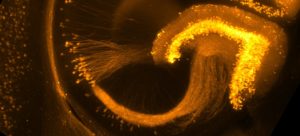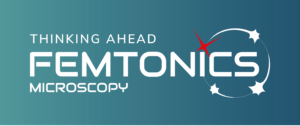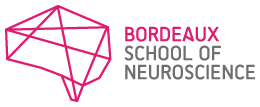How does the activity of neural circuits govern information processing, enable memory formation, and give rise to behaviour? Tackling these questions is one of the great challenges in current neuroscience. To make progress, quantitative studies of both structure and function of neural circuits are required, which these days have become feasible with a collection of new and broad methods. Neural circuit research bridges the molecular-cellular level to the levels of large-scale brain operation and animal behaviour and thus promises to reveal principles of spatiotemporal circuit dynamics that underlie specific brain states and behaviours. The relevance and role of specific cell types and of local as well as long-range circuit motifs need to be understood. This course aims to bring students up-to-date with the most recent developments in this exciting and fundamental field of neuroscience research. The focus will be on the advanced experimental approaches that are available today for the dissection of neural circuit connectivity and activity in various animal models (mouse, fly, zebrafish).
The Cajal course is an intensive three-week course that guides participants through the theory and practice of state-of-the-art methods for addressing pertinent questions in this field of research. This course will teach the latest technological advances in optical, electrophysiological, genetic, viral tracing, anatomical, and optogenetic approaches for the study of neural circuits. Students will learn the current state of knowledge of how neural circuits are organized, especially in the mammalian mouse brain, and how information can be processed in biological circuits through population-based activity patterns. The faculty will consist of international experts in their respective fields, discussing fundamental concepts and their own research, introducing methods relevant for neural circuit research, and providing hands-on projects. Students will perform experimental projects to apply these methods to scientific problems, they will learn how to analyse acquired data, and they will discuss strengths and limitations of the various techniques. The course is designed for PhD students, postdoctoral researchers, and early-stage group leaders, and is aimed at providing them with an enhanced tool set for addressing their current and future research questions.
Course director & co-directors
- Fritjof Helmchen (University of Zurich, Switzerland)
- Andreas Frick (University of Bordeaux, France)
- Cyril Herry (University of Bordeaux, France)
May 2 – 11:00am
Andreas Frick (University of Bordeaux, France)
May 3 – 9:00am
Fritjof Helmchen (University of Zurich, Switzerland)
Optical imaging approaches to study neural circuits
May 3 – 11:00am
Nikita Vladimirov (University of Zurich, Switzerland)
Introduction to light-sheet microscopy and its applications
May 4 – 9:00am
Matteo Carandini (University College London, UK)
Recording from a myriad neurons across the brain
May 4 – 11:00am
Nathalie Rochefort (University of Edinburgh, UK)
Metabolic state dynamically regulates energy usage and coding precision in neocortex
May 5 – 9:00am
Cyril Herry (University of Bordeaux, France)
Decoding defensive systems
May 5 – 10:15am
Daniel Jercog (University of Bordeaux, France)
Prefrontal coding during defensive behaviors
May 5 – 11:20am (remotely)
Nadine Gogolla (Max Planck Institute of Neurobiology, Germany)
Balancing fear: the role of interoception in emotion regulation
May 7 – 9:00am
Valentina Emiliani (Vision Institute Paris, France)
Holographic manipulation on neuronal circuits
May 7 – 11:00am
Marie Carlen (Karolinska Institute, Sweden)
Structural and functional annotation of the mouse prefrontal cortex
May 9 – 9:00am
Matthew E. Larkum (Humboldt University of Berlin, Germany)
The role of single-cell computation in the cortical network
May 9 – 11:00am
Tommaso Patriarchi (University of Zurich, Switzerland)
High-resolution fluorescence imaging of neuromodulators using genetically encoded fluorescent sensors
May 12 – 9:00am
Megan Carey (Champalimaud Research, Portugal)
Understanding the complex behaviors of the simple cerebellar circuit
May 12 – 11:00am
Rainer Friedrich (Friedrich Miescher Institute for Biomedical Research, Switzerland)
Inhibitory connectivity and computations in olfaction
May 13 – 9:00am
Manuel Zimmer (University of Vienna, Austria)
From connectome to function: connectivity features underlying neuronal population dynamics in the nematode C. elegans
May 13 – 11:00am
Athena Akrami (University College London, UK)
How does sensory statistics impact working memory and decision making?
May 16 – 9:00am
Lisa Roux (University of Bordeaux, France)
Hippocampal sharp wave ripples: mechanism and function for place cell coding
May 16 – 11:00am
Pavan Ramdya (Federal Institute of Technology in Lausanne – EPFL, Switzerland)
Reverse-engineering Drosophila action selection and movement control
May 17 – 9:00am
Johannes Kohl (Francis Crick Institute, UK)
Flexible circuits for instinctive behaviors
May 17 – 11:00am
Antoine Adamantidis (University of Bern, Switzerland)
All-optical dissection of thalamo-cortical circuit function in sleep
May 18 – 9:00am
Benjamin Grewe (Federal Institute of Technology in Zurich- ETH Zurich, Switzerland)
Neural Circuits for hierarchical credit assignment
May 18 – 11:00am
Jean-Sebastien Jouhanneau (Max Delbrück Center for Molecular Medicine in the Helmholtz – MDC Berlin, Germany)
State dependent functional connectivity in neocortical network
Jerôme Baufreton (University of Bordeaux, France)
Philipp Bethge (University of Zurich, Switzerland)
Roman Boehringer (Federal Institute of Technology in Zurich – ETH Zurich, Switzerland)
Lorena Delgado (University of Bordeaux, France)
Simon D’Aquin (University of Zurich, Switzerland)
Matthias Durrieu (Federal Institute of Technology in Lausanne – EPFL, Switzerland)
Gabrielle Girardeau (Fer à Moulin Institute, France)
Noelle Grosjean (University of Bordeaux, France)
Yann Humeau (University of Bordeaux, France)
Daniel Jercog (University of Bordeaux, France)
Jean-Sebastien Jouhanneau (Max Delbrück Center for Molecular Medicine in the Helmholtz – MDC Berlin, Germany)
Marie Labouesse (Federal Institute of Technology in Zurich – ETH Zurich, Switzerland)
Frederic Lanore (University of Bordeaux, France)
Arthur Leblois (University of Bordeaux, France)
Christopher Lewis (University of Zurich, Switzerland)
Catherine Marneffe (University of Bordeaux, France)
Pavan Ramdya (Federal Institute of Technology in Lausanne – EPFL, Switzerland)
Lisa Roux (University of Bordeaux, France)
Gwendolin Schoenfeld (University of Zurich, Switzerland)
Ourania Semelidou (University of Bordeaux, France)
Sandra Soukup (University of Bordeaux, France)
Naoya Takahashi (University of Bordeaux, France)
Roman Ursu (University of Bordeaux, France)
Nikita Vladimirov (University of Zurich, Switzerland)
Yuktiben Vyas (University of Bordeaux, France)

Keynote speakers
Antoine Adamantidis (University of Bern, Switzerland)
Athena Akrami (University College London, UK)
Matteo Carandini (University College London, UK)
Megan Carey (Champalimaud Research, Portugal)
Marie Carlen (Karolinska Institute, Sweden)
Valentina Emiliani (Vision Institute Paris, France)
Rainer Friedrich (Friedrich Miescher Institute for Biomedical Research, Switzerland)
Nadine Gogolla (Max Planck Institute of Neurobiology, Germany)
Benjamin Grewe (Federal Institute of Technology in Zurich- ETH Zurich, Switzerland)
Johannes Kohl (Francis Crick Institute, UK)
Matthew E. Larkum (Humboldt University of Berlin, Germany)
Tommaso Patriarchi (University of Zurich, Switzerland)
Pavan Ramdya (Federal Institute of Technology in Lausanne – EPFL, Switzerland)
Nathalie Rochefort (University of Edinburgh, UK)
Lisa Roux (University of Bordeaux, France)
Manuel Zimmer (University of Vienna, Austria)
Our sponsors






